Where were Winnifred and Willow? Last night he came downstairs around bedtime and didn’t see either of them. This alarmed him. He wasn’t worried about Monty—Monty’s an old cat, shows up when he pleases. But the two rescue kittens aren’t as worldly as Monty is, and there are hawks here in Malibu, which is why last year Robert Downey Jr. hired the host of the television show My Cat from Hell to come and rig up all kinds of gates, tents, fences, and special cat doors, everything wrapped in camouflage netting—what Downey calls Catification Zones. Because Downey knows that if he lets anything happen to the cats, Susan and the kids will vote him out on the street.
It had been a normal Friday evening, full of the smallness of life that sustains Downey these days. His son Exton plays in the sixth-seventh-eighth-grade basketball league and they’d all gone to his game at the high school, after which Exton went to a sleepover. The house was quiet now—the chef had gone home; the alpacas (Dandy, Fuzzy, Sadie, Jess, and Buttercup), the goats (Cutieboots, Memo, Zoltar, and Pepper—the only one Downey’s kids let him name), and the other animals were asleep outside; and Downey was maybe going to find something new to watch on his iPad Pro now that he’d finished The Curse.
But where were Winnie and Willow? He called to his nine-year-old daughter, Avri, in her room, and it turned out that the kittens had crawled up inside her bed frame, either trapped or hiding, and she couldn’t lure them out. There’s no bottom under the frame—it’s like a futon—plus Avri has about a hundred blankets on her bed (“like chain mail,” Downey says), so they were both peeling off the covers while he was trying to lift the mattress and reach under and then blam! one of the cats came flying out, scared the crap out of him, and the other one went that way and—
It was a whole thing.
He’s telling me this over a cup of coffee the next morning. Why is he telling me this? I don’t know, but it’s funny. I then knock over my coffee—this is one minute into our interview—and look frantically for something with which to wipe the umber splotch off his white kitchen table. But he says, “No, don’t touch it!” He splays his hands in the air, staring at the spill as if he were framing a shot. “It’s perfect.”
I look at the spill and—well, it is . . . kind of . . . perfect.
By pretending that my klutz move was an act of inadvertent artistic creation, Downey has, in this moment, saved me from humiliation. I didn’t know it then, but it was clear when I listened to the tape later that from that moment on, for the next five hours, this interview would be different. He would lead, and I would follow, and it would hardly clock as an interview at all but rather a sort of conversation. In fact, it would be unlike any conversation I had ever had in my life.
“Last I checked, it was Saturday,” he says of today. Four days ago, Downey, fifty-nine, was nominated for an Academy Award for his role in Oppenheimer, and telling himself this is just a regular Saturday is his way of keeping life small. “It’s so funny, too, because you either constantly remind yourself when things aren’t going your way, or you’re constantly reminded externally when things are going your way,” he says, unwrapping a nugget of Nicorette. “Clearly, the latter is preferable.” He smiles, the bright, boyish smile—rubbery lips and eyes like a sad clown’s and not a care on God’s green earth—that has broken your heart or made you laugh in a thousand scenes.
He sits at the round white table in the bright, white kitchen, dressed in baggy camo. Behind him is the coffee station: a Moccamaster, an elaborate espresso machine, and a jumble of eco-friendly plastic cubes that say happy, his new coffee company. I’ve brought him honey I bought at a farm stand up the road. He thanks me very much and studies the label, then informs me that what I assumed was local honey is actually from Delano, California, a small city near Bakersfield full of enormous processing plants. Awesome. He smiles and saves me from embarrassment again: “Well, think locally, buy regionally!”
I’m barely asking questions, because when Downey talks you want to listen. His mind is always operating on several levels, and you want to find out where he’s going, so you don’t step on his thoughts. He then fills the short lulls with kaleidoscopic soliloquies that skitter from thought to idea to memory and I’m hypnotized. Like:
Me: What do you want to do that you haven’t done?
Downey: Everything I haven’t done. It’s natural to bolster one’s delicate ego by imagining that everything’s been said, done, and experienced. And/or I love a bit of contempt prior to investigation. But I think that’s really what I’ve bumped up against in the last—let’s call it thousand days. Said, ‘Oh, it’s not even just contrary action,’ and see what happens. It’s more like I notice folks, myself included, tend to hold ourselves in bondage based on our self-limiting beliefs. So then I go, Okay, well obviously I don’t have self-limiting beliefs in the area of you-name-it where it’s pretty clear that you’re creating a reality according to some pretty good expectations or with some confidence or with knowing how you get there—the steps. And then there’s—I love this phrase—You want problems in areas where you didn’t used to have areas . . .
He goes on. I nod and try to keep up, each sentence a kind of charged particle. For many years in the eighties and nineties, Downey did everything big. He led a big Hollywood life, had an enormous drug problem, and made tons of movies. He hadn’t had much of a childhood—his father, known as Senior in the family, directed avant-garde films. His parents separated when he was twelve, and his father moved to Los Angeles with Downey’s sister while he stayed in New York with his mother. There wasn’t a lot of what he calls the small stuff at all, and he ached for a normal family life.
Once, when he was around thirty, still up and down with his addiction, he stopped by to see his friend Mel Gibson, with whom he had starred in Air America in 1990. “I was in some shabby little room with all my children,” Gibson says. “I had this tribe of kids, and they were all kind of youngish, and they were lying all over me, watching some crappy movie on TV and laughing. And Robert came in and sat and watched the TV, but I think he was watching us. When he got up to leave, I went out with him and he said, ‘Man, how do you do that? You’re like a saint.’ He looked at that in some kind of wonder. I think he really wanted that sense of family.”
Downey and his wife, Susan, a producer, have been married for eighteen years and have two children together, Exton and Avri. During the pandemic, they took regular walks on the beach below their home for what he calls walking couples therapy: “Trying to figure out where we’re at, what’s pissing us off, what are we afraid of, what do we want, what will bring us closer together, how do we measure ourselves against relationships that we define as exemplary and not be repeaters or over-emulate? How do we want to shape our life?”
When Downey’s not off shooting a movie for weeks at a time and Susan’s not mired in postproduction, weekdays go something like this: The two walk Exton and Avri to a cabin near the main house where the kids are home schooled by a teacher. They then go to their offices (on the premises), then try to meet up for lunch, which is sometimes a working lunch to discuss a project for Team Downey, their production company. They check in with the kids after school. It seems a happy home. Small (though quite large).
This article appeared in the April/May 2024 issue of Esquire
I ask Downey what he likes to read. “Well, let’s see,” he says, grabbing another Nicorette and a stack of books from a kitchen shelf.
“We’ve got the Rick Rubin,” he says. (The music producer’s recent book, The Creative Act, is on top.)
“We got a little twelve-step action.” (A book about recovery.)
“I’m still diving into Strauss’s book, Men and Decisions.” (This, a dense book by former Atomic Energy Commission chairman Lewis Strauss, the man he plays in Oppenheimer, was published in 1962. Downey’s edition is old, in excellent condition, and signed by Strauss.)
“That’s the one we just did.” (Cool Food, by Downey and climate writer Thomas Kostigen, a manifesto about climate-friendly foods, with recipes.)
“Oh, looga this.” He grabs The Book of Symbols, a guide to the meanings of visual symbols throughout time, and he starts leafing to the pages he’s dog-eared. “It just shows . . . everything: the Crescent. Rain. The Pine Tree. I don’t know why, but I love this stuff. I think you get so much energy and data. Shipwreck. Oh my God—Thread! Helmet, for sure.” (Because Iron Man.)
The Apron page is flagged. His brow crinkles.
“Why did I go to Apron? Oh: ‘The apron of the body, the abdomen and pelvic area that contains the organs of generation, lends its shape and potency to the apron of costume.’ That’s why. Oh: ‘Cooks, bakers, artisans. Artisans wear aprons to protect them from the material of their work, but such aprons also carry that evocation of a chthonic generative fire.’ C-h-t-o . . . thonic? Chthonic. Is that an e or—? Motherfucker.”
He speaks into his phone now, seeking help: “C-h-t-h-o-n-i-c. Ch-thonic. C-h-t-h-o-n-i . . . By the way”—he is trying to look up the definition on his phone, which can’t find the word—“I mean, come on.” Finally, his phone says, “Thonic.” “ ‘Concerning, belonging to, or inhabiting’ ”—he looks up at me like a surprised Goonie—“ ‘the underworld! A chthonic deity.’ Dude. This is a big moment for us.” He snaps the book closed and is off again, unspooling thoughts with only lame promptings from me. (“Really?” “Your father?” “Wow.”) About The Sympathizer, his upcoming series; about Downey’s Dream Cars, his recent eco-mod car-reno show; about filming Sr., the 2022 documentary on his father. This is one of his great and many gifts, this ability to move immense volumes of words from his brain to his lips at high speed and have them emerge in a long ribbon of enchanting stories and real-time analysis that you don’t hear so much as . . . watch.
He pauses to breathe, then says, “I haven’t really let you ask a question. Maybe we should feather a few in.” I want to know how all of this life—dad and mom and the seventies and the eighties and drugs and family and kids and everything—shows up in the performances we see onscreen. I ask this in a rambling way, and before I finish, he begins:
“As you’re talking, I keep thinking of the typical movie shot where a detective is spreading all these things out on the floor and trying to make sense of it,” he says. “One’s own life, I think for anyone, is a bit of a mystery—not to solve but at least to try to understand. I’m not very good at it, insomuch as I’m not great at—it’s hard not to affect the experiment just by enacting it, so I tend to catch myself going, Oh, you’re reframing this in this context now. Or: You want to be seen in a favorable light, so the thing you should say to the person recording all this stuff is this. And part of me is just like, Ugh, I’m exhausting myself in two directions. But”—he drums the table, buh-da-bum—“hold on. Gimme twenty seconds.”
He hops up. On the refrigerator is a smiling cartoon of Susan, a leftover visual aid from an elaborate toast he made at her fiftieth-birthday party. As he walks across the kitchen, Downey touches it. Just taps three fingers on the image of his wife while he whisks past it. I don’t assume he knows I see this, one of the smallest and largest acts of romantic love I have ever witnessed.
He returns to the kitchen after twenty seconds carrying sheafs of old papers in protective plastic sleeves, which he handles as if they were delicate antiquities. The first bundle is an exchange of handwritten notes between Robert Downey Sr. and the composer Jack Nitzsche, most of which are inchoate lyrics for songs they planned to record. (Sample lines: “Don’t think I’m narcissistic / It’s all quite artistic” . . . “Luigi, Luigi, to be a magician, there’s no repetition” . . . “You yell timber / And I fall on top of you” . . . “Never could fuck to the blues.”)
More pages: a story he wrote—Robert Downey, age nine—titled “TRX: A Love Story.” It’s on yellowed construction paper, held together with tape and time, each page crowded with his neat penmanship and careful drawings. The tale is something about a boy who steals a pair of sneakers but then, crippled by guilt, decides to give them back. Downey reads what he wrote five decades ago: “ ‘What about bro and sis, the presents they’ll miss? I can’t do this. I say they don’t fit, put on my jacket and split.’ It’s like my dad had me writing Beat poetry about shoplifting.”
This ephemera appeared coincidentally in his mail over the past few weeks, sent by old friends and family, which mystified and delighted him. “I presume everything is lost to history,” he says. “Anything that was ever written on paper, anything that’s not in a data file or on a thumb drive, is fucking gone. Anything that was in storage has been sold, because all of us miscreants couldn’t make the payments for the containers. And yet the world is telling you that there are these artifacts out there. Make of them what you will, but we’re giving you back some of your data.”
As we sift through the pages, the household is happening around him. Avri pads across the kitchen floor wearing a cat mask, hopping into Downey’s lap. (“Avridowney!” he calls her.) Susan, glisten-y from a workout, comes and goes after talking about the afternoon’s logistics. (He greets her with “Hi, Downey!” and says to me, “Here’s the sweaty boss.”) Downey slaps the kitchen table when everyone’s gone. “This is my fucking writing desk,” he says. “I love it that there’s all these distractions coming in, you can see the ocean, I can see what Monty’s up to. What’s up, boy? There he is!”
The cat just stares. “What the fuck is going through his mind right now,” Downey says.
Outside: the warm Pacific air, a lolling tree swing, Kunekune pigs lazing in the distance. He’s been talking for a while about Sr., the documentary, and I ask him about something that stuck out to me. In one scene, Downey speaks with his father about Senior’s addiction to cocaine and marijuana.
Sr.: Fifteen years of total fucking insanity.
Jr.: Boy, man. You know, I think we would be remiss to not discuss its effect on me.
Sr.: Boy, yeah. I would sure love to miss that discussion.
They laugh. And they don’t have that discussion. I ask Downey if such a disquisition ever happened, before or after that, and why it isn’t in the film.
“Oh, yeah,” he says. “First of all, knowing that he was unwell and not long for this earth, there’s nothing more hilarious than some adult child of an alcoholic demanding their moment of retribution be fucking captured and documented. And then all of a sudden this movie is no longer about anything that has to do with reality. It’s now some sort of subconscious vendetta. And the other thing is, between he and I and the psychologist and family-therapy weeks and other people that we’ve intervened on in the many years since we’d both been clean, you just realize we’re not in our crisis, or our projection, anymore. We’re more on the winning side, trying to offer assistance to others. But yeah, I can think of a half a dozen times when it got down and dirty.”
Did his father feel guilty?
“Oh, I’m sure. Yeah. But I also know that he was not a big proponent of guilt being a useful thing and that most guilt is unnatural guilt. It’s projected societal socio-pseudo-religious guilt. And with Laura”—Senior’s second wife, whom he nursed through ALS until her death—“he didn’t have time to think about processing. He was not a big processor of his own past, I’ll tell you that much—I don’t think he ever had a single session with a therapist. But he had many instances of living amends, many instances of karmic debt, if that’s real, being relieved. I think when he left this earth, his soul was light as a feather. What better thing? It was a classy as fuck exit, I’ll tell you that much. I don’t know your experience or anyone else’s, but I think there’s a fear for any son that his father will die like a coward.”
Downey stares at me for a moment, then cracks up laughing, loud, eyes wide, as if he has just shocked himself.
“Come on, dude!”
The shorthand story of Susan Downey in Hollywood, and in many articles about her and her husband, is that she saved him. From the vicious addiction that found its nadir in a wad of black-tar heroin, from the state prison where he’d spent a year, from the time in 1996 when he wandered into that house in Malibu out of his mind and woke up in a child’s (other wise empty) bedroom, from all of it—she was his avowed savior. It’s an apocryphal characterization, not without a whit of truth but mostly a book report by a kid who didn’t do the reading.
“Everybody loves the simple narrative of somehow I came in and turned his life around and blah, blah, blah,” Susan says. “But I can tell you that I would never be who I am without him in my life. His trajectory is just the easier one to chart because he’s had to live his ups and downs in public. When we met, we were fortunate that he was in a place where he was open to do things differently than he had historically. But you know what? So was I.”
Downey seems grateful to her not for saving him, exactly, but for awakening him to possibility. “It’s beyond us being two humans who cohabitate and have built a life together. There’s something about her that remains almost entirely a mystery,” he says. “I still—I’ll see her across the kitchen and study her as though I’m a private investigator. And I’m not looking for some hidden motive. It’s just . . . she’s a full-length mirror.”
A shorthand version of Downey himself in his dark years is his character in 1987’s Less Than Zero: drug addicted, cast out by his family, without hope. The performance wasn’t autobiographical, but that era was a bad time for Downey. The latex applied by makeup artists to look like crust at the corners of his mouth is haunting to see today. (“I found him heartbreaking in Less Than Zero, and I found him heartbreaking at the time,” says James Spader, who played his dealer in the film and didn’t see him again for about twenty years, when they were filming Avengers: Age of Ultron.)
Gibson ran into Downey at a gym sometime in the late nineties, when Downey was near rock bottom. He asked Downey to meet up for coffee. They began a friendship marked by helping each other when one of them was, as Downey says, “in the barrel.”
“One time, I got into a bit of a sticky situation where it kind of ended my career. I was drunk in the back of a police car and I said some stupid shit, and all of a sudden: blacklisted. I’m the poster boy for canceled,” Gibson says, referring to his 2006 arrest in Malibu for driving under the influence, during which, according to police reports, he made drunken comments disparaging Jews. “A couple of years into that he invited me to some kind of award he was getting—we always had this kind of seesaw thing, where if he was on the wagon, I was falling off, and if I was on the wagon, he was falling off. So I was pretty much nonexistent in Hollywood at the time, and he stood up and spoke for me. It was a bold and generous and kind gesture. I loved him for that.”
(The event was the 2011 American Cinematheque Awards ceremony, at which Downey, who is Jewish, asked Hollywood—“unless you are completely without sin, in which case you picked the wrong fucking industry”—to join him in “forgiving my friend his trespasses, offering him the same clean slate you have given me, and allowing him to continue his great and ongoing contribution to our collective art without shame.”)
Jodie Foster, a longtime friend of both Downey and Gibson, cast Gibson in The Beaver (2011) after his arrest and in 1995 cast Downey in Home for the Holidays, deep in his addiction era, when many filmmakers considered him too risky to hire. “I took him aside at one point during filming and said, ‘Look, I couldn’t be more grateful for what you’ve given in this film,’ ” she says. “ ‘But I’m scared of what happens to you next. Right now you are incredibly good at balancing on the barstool. But it’s really precarious, and I’m not sure how that’s going to end.’ ”
I ask Foster what it was about Downey that made her believe in him. “What was so interesting about him then was what a genius he was—there was more creativity in his little finger than I will ever have in my whole life—but he did not have the discipline. He was so out there that all of that wonderful talent was kind of just, like, flailing his arms in the water and making a big mess. But it was in there somewhere, right? Because now he is somebody who’s become disciplined almost as a way of surviving.”
Then she says, “I have faith in people’s ability to change if they want it, and he really wanted it. And Mel, too.”
(Ben Stiller, who directed Tropic Thunder, also calls him a genius: “I really do feel like that’s the word for him. Although a genius is someone who might not have to work as hard, and Robert works incredibly hard.”)
Downey has a way of regarding everything in his life—big stuff, missing cats, random artifacts in the mail, Oscar campaigns—on the same scale, piles of fascinating puzzle pieces that fit together in a way none of us may ever understand but that is nonetheless intoxicating for him to try to figure out. (This is part of why talking with him can be, as Gwyneth Paltrow puts it, “nonlinear, like talking to a Dalí painting.”)
That expansive view of life also seems to inform his belief in generosity—giving and taking and vouching and loyalty and restitution, and “if you want to have a friend, be a friend,” as he says.
His own instinctive generosity emerges in forms both grand and almost undetectable. The first time Hoa Xuande, the young star of The Sympathizer, stepped on set to film with Downey, Downey approached him. “He said, ‘Brother, we’re going to screw this thing up together. Don’t worry about it,’ ” Xuande says. “He could see how nervous I was, and I appreciated that.”
And when he hears of someone lost in the same struggle that almost killed him, he extends saving grace almost out of habit. “I recently had an issue with a friend I was trying to help in that regard,” says Paltrow, “and Robert will pick up the FaceTime while he’s in the bath and help me. I think he’s created an abundance of all the wonderful stuff in life, and he creates abundance for other people, too. It’s like the healthy side of addiction. When abundance is in its healthy form, I think this is what it looks like.”
Susan was already a successful producer when she met Downey on the set of Gothika in 2003. Today, their work lives and their personal lives are what Susan calls “completely intermixed,” especially on a day when the excitement of the Oppenheimer nomination converges with a recent publicity boost for Downey’s Dream Cars and the promotion of and postproduction work on The Sympathizer.
Which, by the way: holy shit. It wasn’t the obvious next move after playing Tony Stark in nine films over eleven years followed by a supporting role in a prestige film. The seven-episode series, which premieres on HBO on April 14, is based on a dizzying novel by Viet Thanh Nguyen that won the Pulitzer Prize in 2016. Its main character, identified only as the Captain, is a communist spy posing as a South Vietnamese military officer who is among the tens of thousands of Vietnamese citizens airlifted to the U. S. after the Vietnam War. It’s a brutal satire that unteaches everything you think you know about that war and its aftermath, told from a Vietnamese point of view—a counternarrative of identity and nationalism and immigration, an irresistible story for this moment. Downey is an executive producer and plays four different roles—all white, male, American archetypes. That idea came from Park Chan-wook, the legendary Korean filmmaker best known for Oldboy, who directed the first three episodes of The Sympathizer.
Downey loved the multi-role idea. “I knew that playing Strauss, in Oppenheimer, was going to be like picking fly shit out of pepper—that it was going to be extremely exacting, that it was going to be . . . not confining, but liberating by its varied implicit limitations of what my usual toolbox is,” he says. “So I had a feeling that, like a coiled spring, Sympathizer would be my unwind.”
But even in a tightly scripted episodic show based on an intricate novel and with an exacting director, Downey found room to do what he always does: improvise. “I started to wonder whether Robert had ten writers at his house who he hired to come up with different lines, which he would memorize and pretend they were improv,” Park says. “How could it be that he comes up with such lines so quickly?”
On Iron Man, Paltrow eventually stopped bothering to learn her lines at all. “There would be this process of [director] Jon Favreau and Robert and I going into Jon’s trailer in the morning and Robert being like, ‘I’m not fucking saying these lines’ and throwing them out. And then live improv-ing either in the trailer or on the set,” she says. “I think in order for something to feel alive for Robert, it has to feel fresh, and he makes it fresh by making it feel like it was just invented. So many of those famous lines were written ten minutes before we said them.”
“So this is a Peruvian-style lobster salad on crispy rice, so you’ve got aji amarillo in there, some ginger, some sesame. We have a miso soup, and this is a vegetable takoyaki, so kind of like a round pancake with—”
“Motherfucker,” says Downey, looking at the spread his private chef has served.
“—pickled ginger, cabbage, yuzu aioli, and some Bull-Dog sauce. And then a simple salad with some greens, shaved carrots, purple radish.”
We are sitting outside the Shell, a sixty-five-hundred-square-foot structure up the driveway from the main house. Designed by the architect Nicolò Bini, it uses an earthquake-resistant design whereby neoprene bladders are covered with concrete and then inflated, creating an undulating form. When the concrete cures, the bladders are deflated, leaving a concrete bubble: the house. It’s an engineering feat, an environmentally conscious antidote to the global housing shortage, and a very cool house. There are bedrooms, a kitchen the size of a small café, and a screening room in which Downey watched me watch rough-cut scenes from The Sympathizer.
Outside, picking at our Peruvian lobster, my phone buzzes. It’s my seventeen-year-old, FaceTiming me from back in New York.
“Take it, take it!” Downey says. “Talk to your son!”
I hesitate, but I know John’s at home sweating his college-application essay and probably needs help. I tell Downey this and then answer the call. Within seconds, Downey grabs the phone.
“What’s up, bro? How’s your essay, Ese?”
John gives a nervous laugh—he’s seen every Iron Man movie a dozen times and now, holy crap, it’s the guy.
“Um, yeah, it’s my college essay.”
“On?” Downey asks, probably expecting it to be about how this kid got over not making the track team or spent time volunteering with Habitat for Humanity or something.
“Oh—I mean, it’s about my, like, brother and how I’ve gotten through it, and my passion for flying.”
Downey looks at me. I tell John I haven’t mentioned anything about my other son, his younger brother.
“Oh. My brother got, like, cancer, about five years ago, and so yeah, it’s just been hard, but I’ve been able to get through it. And flying. I want to be a commercial pilot when I grow up.”
Downey is upbeat and tells John about some pilots he knows. He wishes my son good luck with the essay. Once the call ends, Downey reflects on what it must be like for John to write about his brother’s illness for the purpose of getting into college.
“It’s hard to give yourself permission to let your experience benefit you when it’s resultant of what has to be classified as a tragedy,” he says.
“I think he feels guilty,” I tell him.
“He mustn’t. He fucking mustn’t. But: Mustn’t is easy. ‘Can, may, shall, must.’ He needn’t.”
The chef returns, smiling with plates.
“Last little bit is just some miso Chilean sea bass with some blistered snap peas and a light miso vinaigrette,” he announces.
“You’ve done it again,” Downey says—then laughs, then mimics himself. “ ‘Good luck with that essay and your brother who got leukemia that left him brain damaged—what is this, lobster on a rice cake?’ ” His face snaps to serious: “Because the crazy thing about life, and the things that are important to not feel guilty about, is those things are right up against each other.”
“I’m probably not supposed to do this, but will you tell John what you just told me, about guilt?”
Downey practically grabs the phone out of my hand.
“Hey bro, sorry to call you back.”
John, with another nervous laugh: “No problem.”
“I’m sittin’ here with your pops. And listen, I have similes to your experience in my life, and it’s really hard to not feel guilty about them being part of your story, that on some level could benefit you by sharing them, because you never want to profit in any way off something that could be labeled as a tragedy—even though that’s all up to interpretation and life is very fucking mysterious. You needn’t burden yourself with that. It’s an exercise. And if you’re stuck, just ask for the next right-indicated action. Take a second—like we’ve had all these lulls in our interview today. But it’s gonna come. The writer’s block on something like this is probably some sort of unnatural guilt. I’m just guessing.”
John is silent, taking his turn at processing Downey’s exquisite, perceptive language.
“Given your druthers, where would you go to college?”
Pause. “What?”
“Where do you want to go to school if you could pick anywhere right now?”
John gives him the list.
“Cool. You gotta understand, I got my GED in prison, so I’m not really your best counselor in this area. But I do know something about making lemonade. Squeeze it, dude. Because otherwise the fortunes of others, or lack thereof, is all for fucking nothing.”
Pause. “Okay.”
“Your win is his win. All right. I didn’t think your dad and I were gonna get this deep for our fucking Esquire interview. But it just went there, and I’m glad it did.”
After he hangs up, Downey holds his napkin to his face for a long minute. When he pulls it away, there are tears on his cheeks. I pause for a moment (I mean, this is one of the great actors of our time . . .), but he seems genuinely moved. He starts to talk, but something seems to catch in his throat.
The chef serves us cups of medium-roast Happy coffee. Downey sips it. “Goddammit, this one’s good,” he says of the coffee he helped create. “Fucking two years of development. It’s like everything. I’m terrible when it comes to getting things done done. I can handle the development phase; it’s just when you see how the sausage is made, and you see that it is pushing a metric ton of shit through a tin horn to get a gram of anything done done, you just go, like, Who invented people?” At this, Downey laughs so hard he stomps his feet, slaps the table, and lets out a cathartic snort.
By the time I got back to my hotel from Downey’s house, John had sent his finished essay to my in-box. He had been trying to write that essay for six months. Now, a couple hours after he’d gotten off the phone with Downey, it was done. And it was beautiful.
Six Weeks Later
He is at a party within a party, cloistered behind a velvet rope in a packed, glittering room high above Los Angeles. It’s close to midnight, eight hours after Jimmy Kimmel opened the Oscars ceremony with a thud of a joke about Downey’s drug history and six hours after Ke Huy Quan called his name, Hollywood leaped to its feet as if so proud of their boy after all these years, and Downey gave an acceptance speech that included the line of the night: “You loved me back to life.” Susan gets them coffees, which he spills.
The next morning, his friend the photographer Davis Factor takes pictures of him and Susan and the kids for a few hours, chronicling the day for their family history. They’re in the hallways of the Beverly Hills Hotel, laughing and dancing and taking pictures. Sylvester Stallone walks by, stops, and says, “Congratulations, man.”
A couple of sunny mornings later, his world, as it turns out, is still small. Susan has a bit of a stomachache, and she is spooning some Barney almond butter onto a gluten-free cracker. Downey is at the kitchen table. He has some voice-over work to do later, for The Sympathizer, and then Exton has baseball—a big game against a rival team.
“Last I checked, it’s Wednesday,” he says.
Post-Oscar questions:
The Kimmel joke? “I don’t care. I love Jimmy Kimmel. I think he’s a national treasure.”
Standing onstage at the ceremony, in front of the world? “I was just trying to hold my mud.”
How about the Marvel Cinematic Universe. Would he ever return to it, as an Academy Award winner? “Happily. It’s too integral a part of my DNA. That role chose me. And look, I always say, Never, ever bet against Kevin Feige. It is a losing bet. He’s the house. He will always win.”
And our coffee spills, which now bookend this story? “Klutzy magic.”
It’s done now. This morning, he’s looking forward. Everything means something. Crescent. Pine tree. Apron. Rain. Academy Award. “I’m hopefully alighting to greener pastures, because in the final analysis, these things are meant to be signals, not signs. They’re meant to point to something, not to be a destination in and of themselves,” he says. “It’s like what Tony Stark says to Pepper Potts when he gets out of the cave and makes it home: ‘All right, vacation’s over.’ ”
Photo at top: Coat and trousers, Saint Laurent by Anthony Vaccarello; tank top by Calvin Klein; boots by Marsèll; belt with chain by Alexander McQueen; sunglasses by Ahlem.
Photography by: Norman Jean Roy
Styling by: Alison Edmond
Grooming by: Davy Newkirk using American Crew at the Wall Group
Production by: Jill Roy at 3Star Productions
Set design by: Bette Adams for MHS Artists
Tailoring by: Hasmik Kourinian
Design Director: Rockwell Harwood
Contributing Visuals Director: James Morris
Executive Producer, Video: Dorenna Newton
Executive Director, Entertainment: Randi Peck
https://ift.tt/J5pQPja
Entertainment
Bagikan Berita Ini
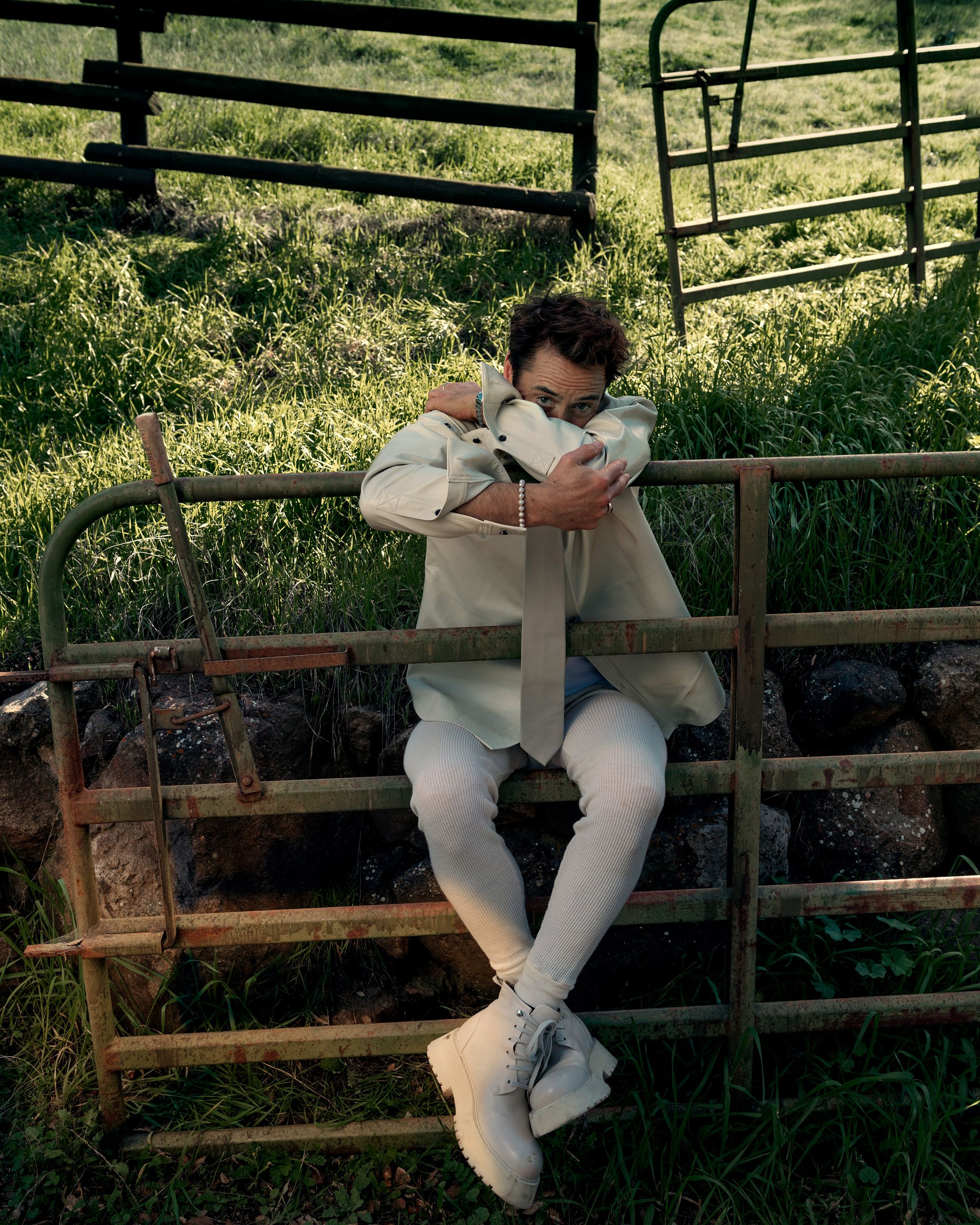
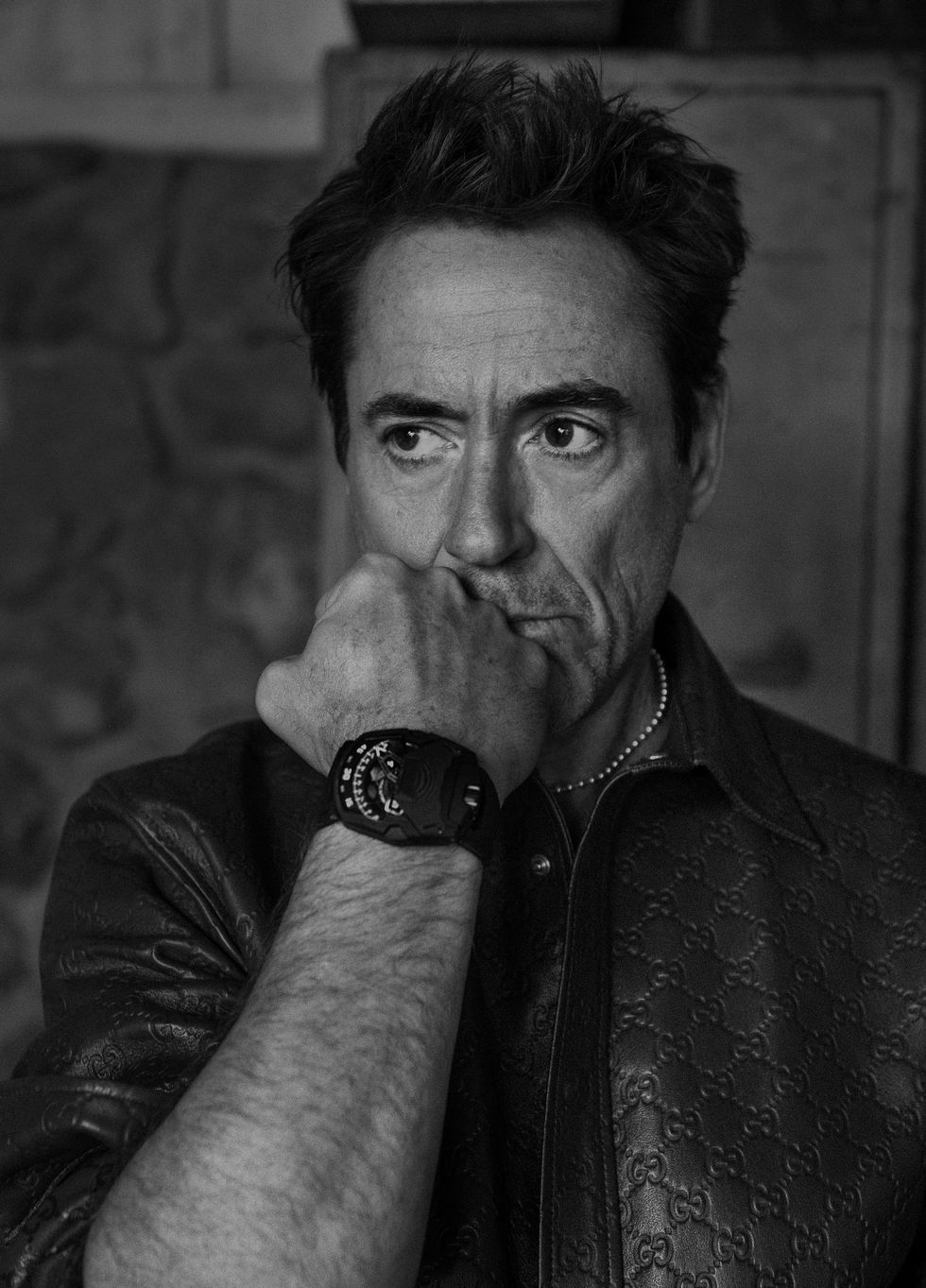
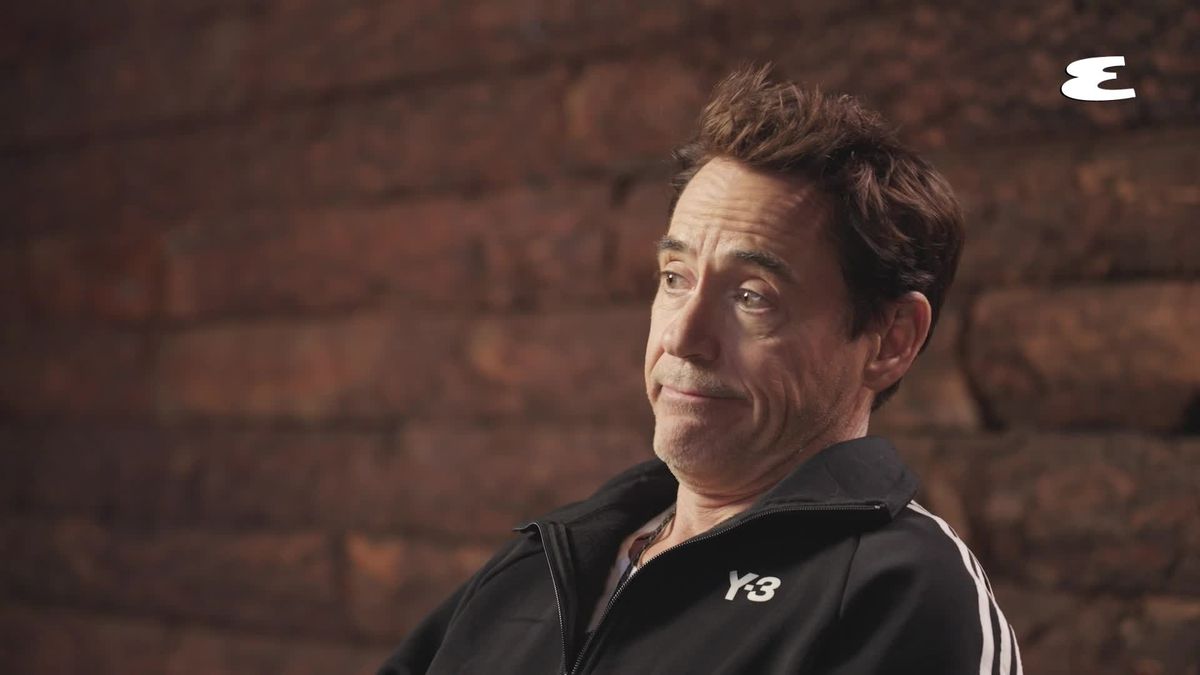
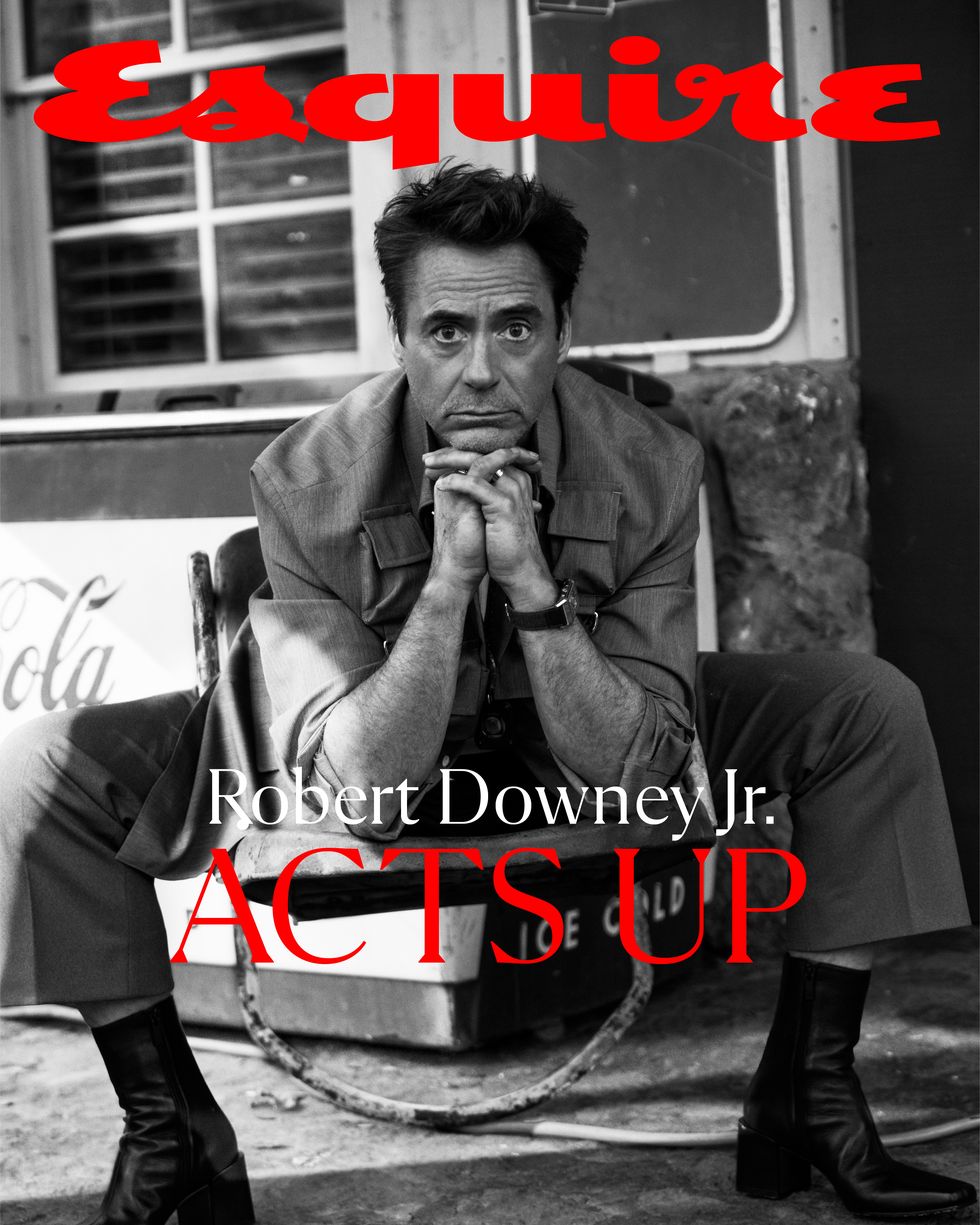
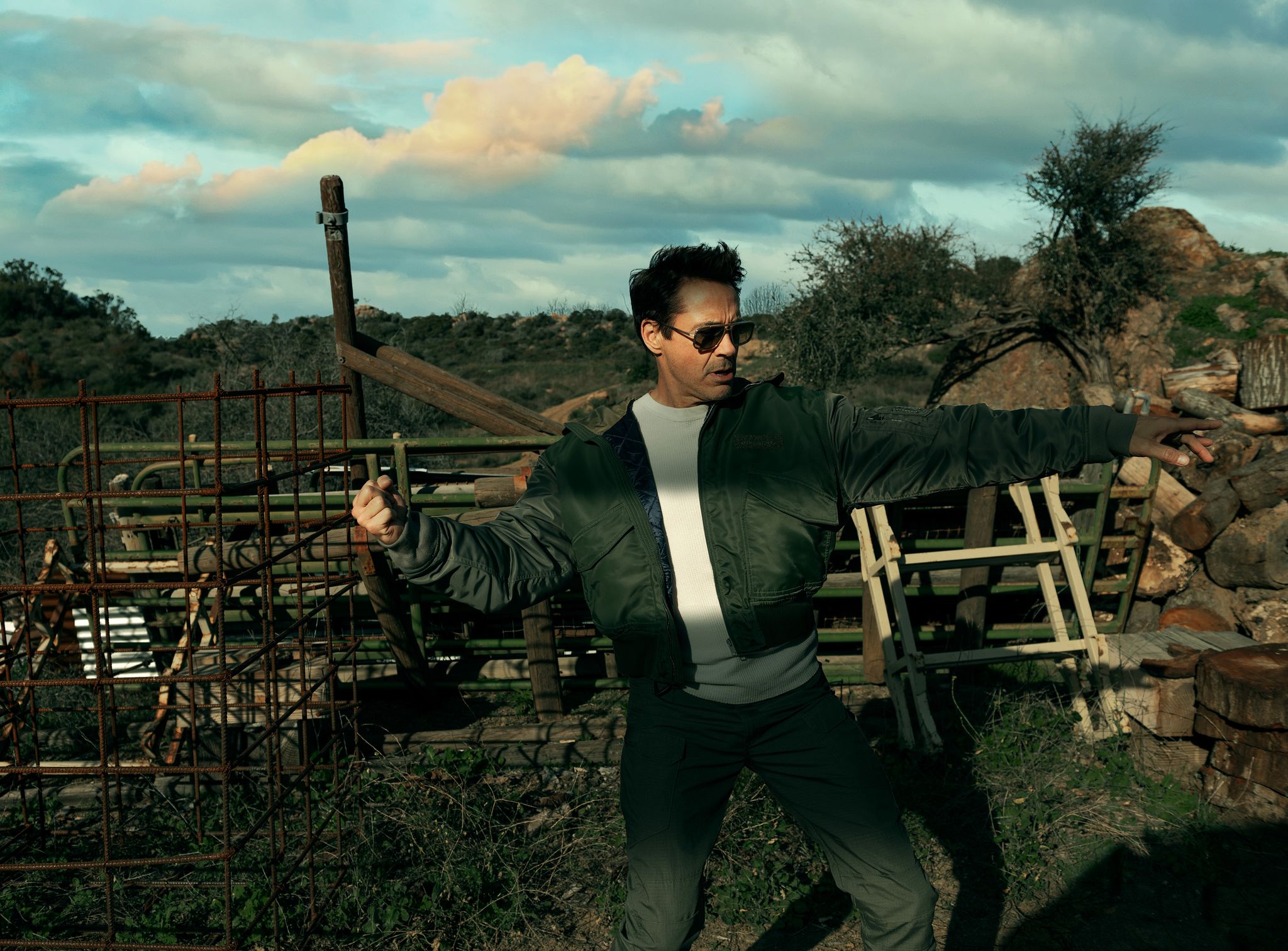

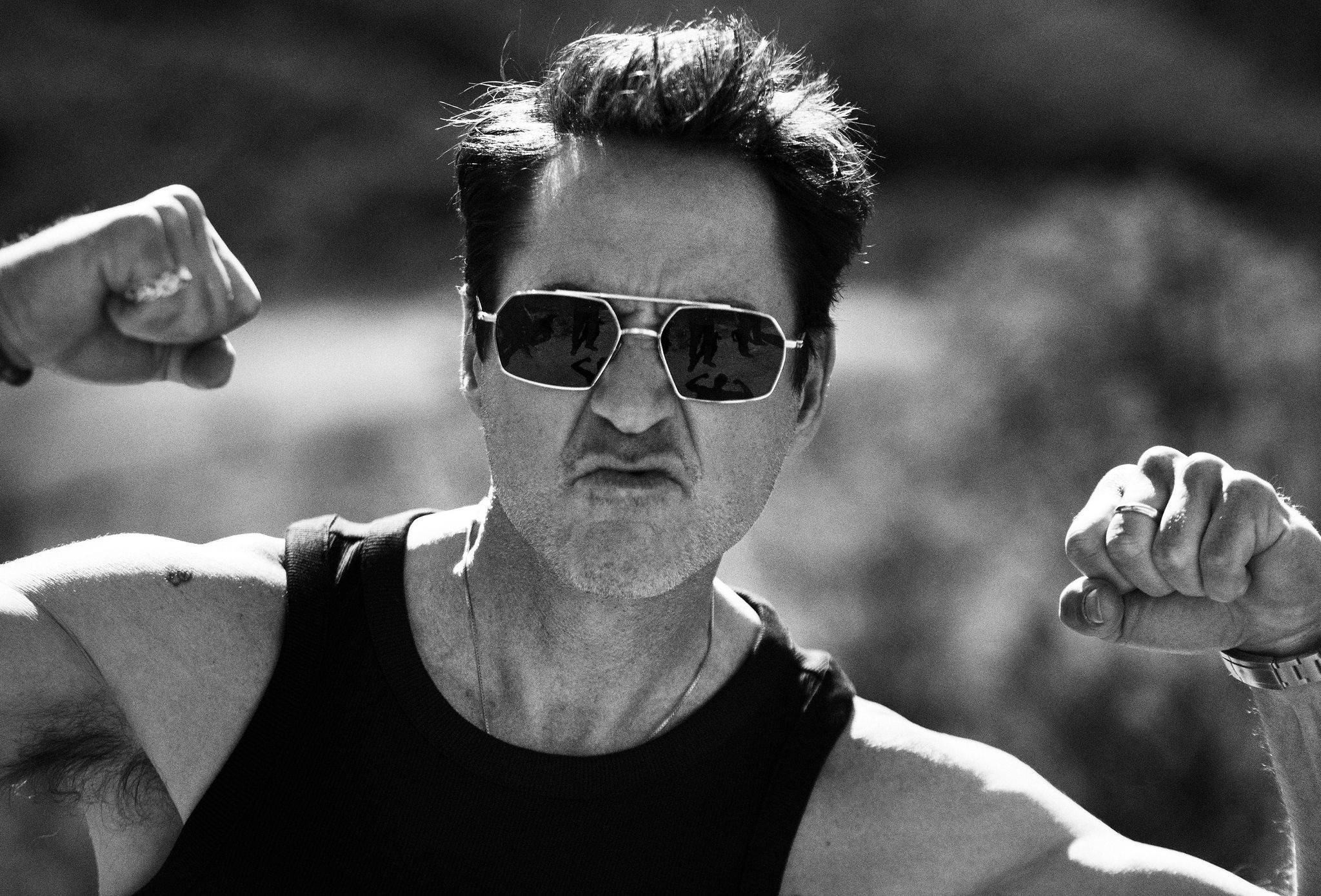
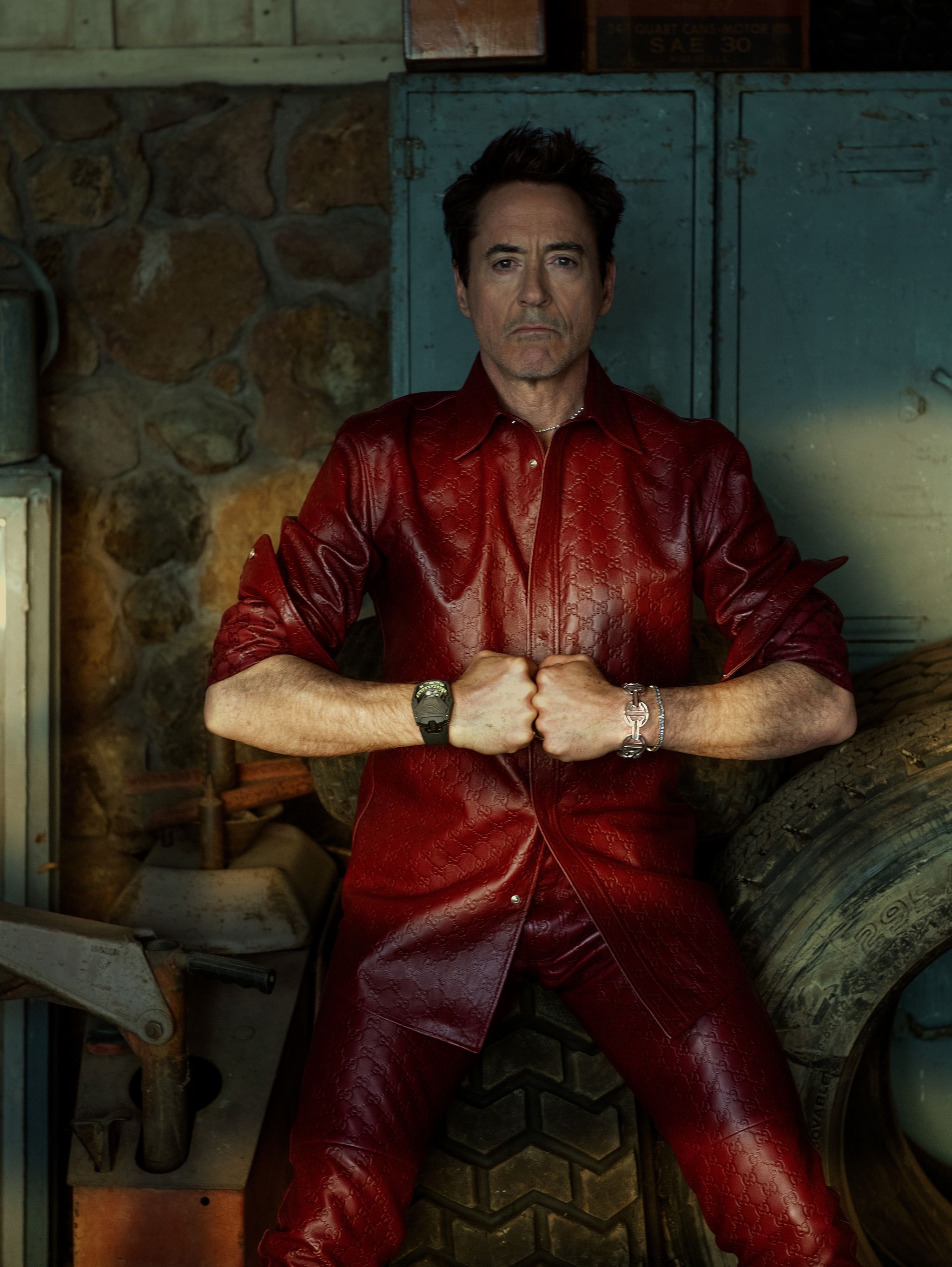
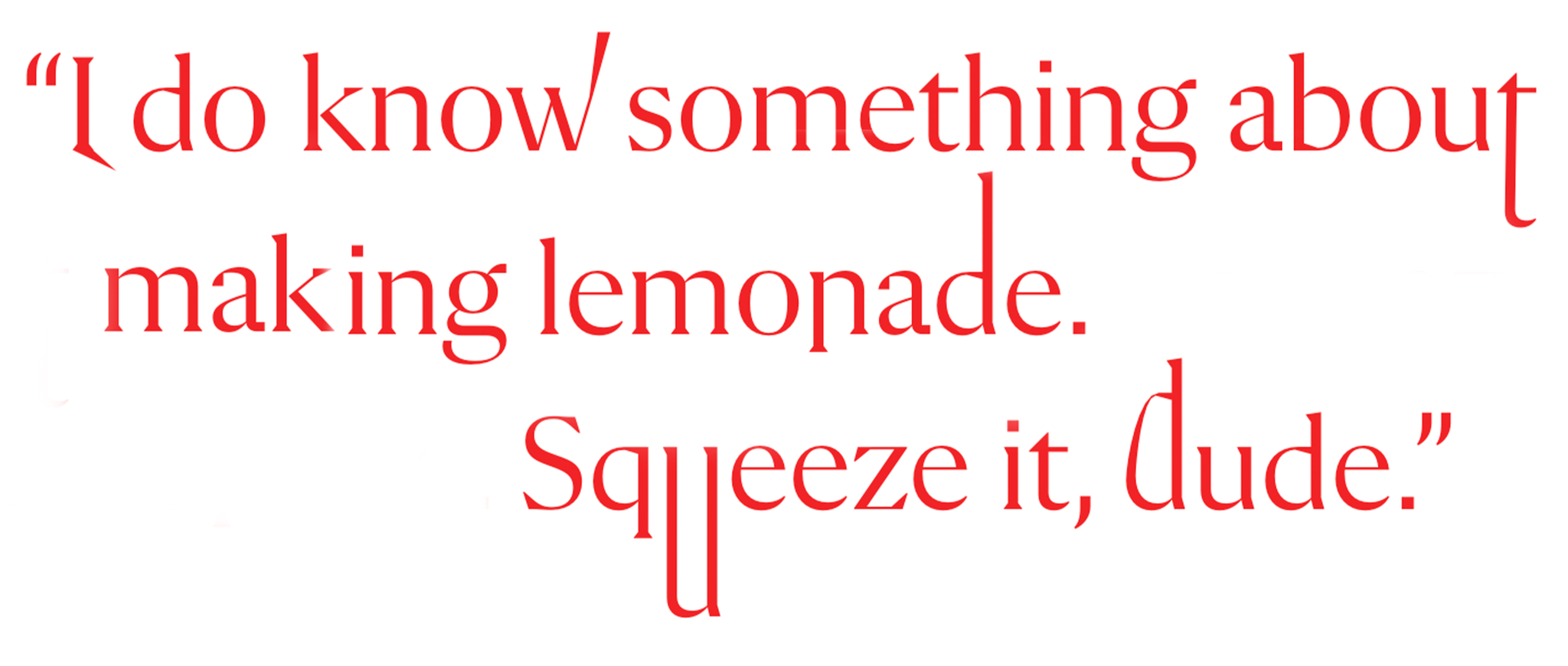
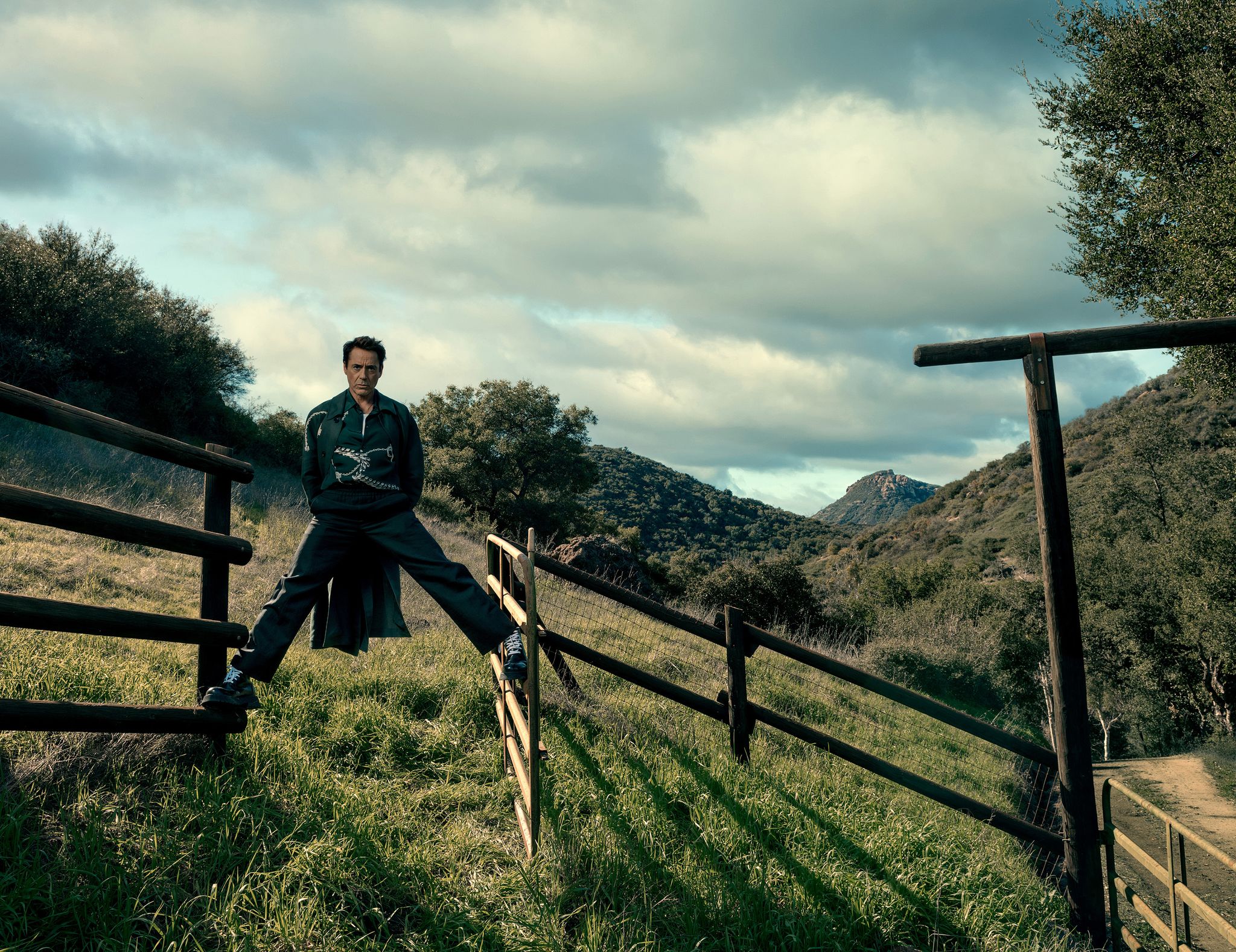
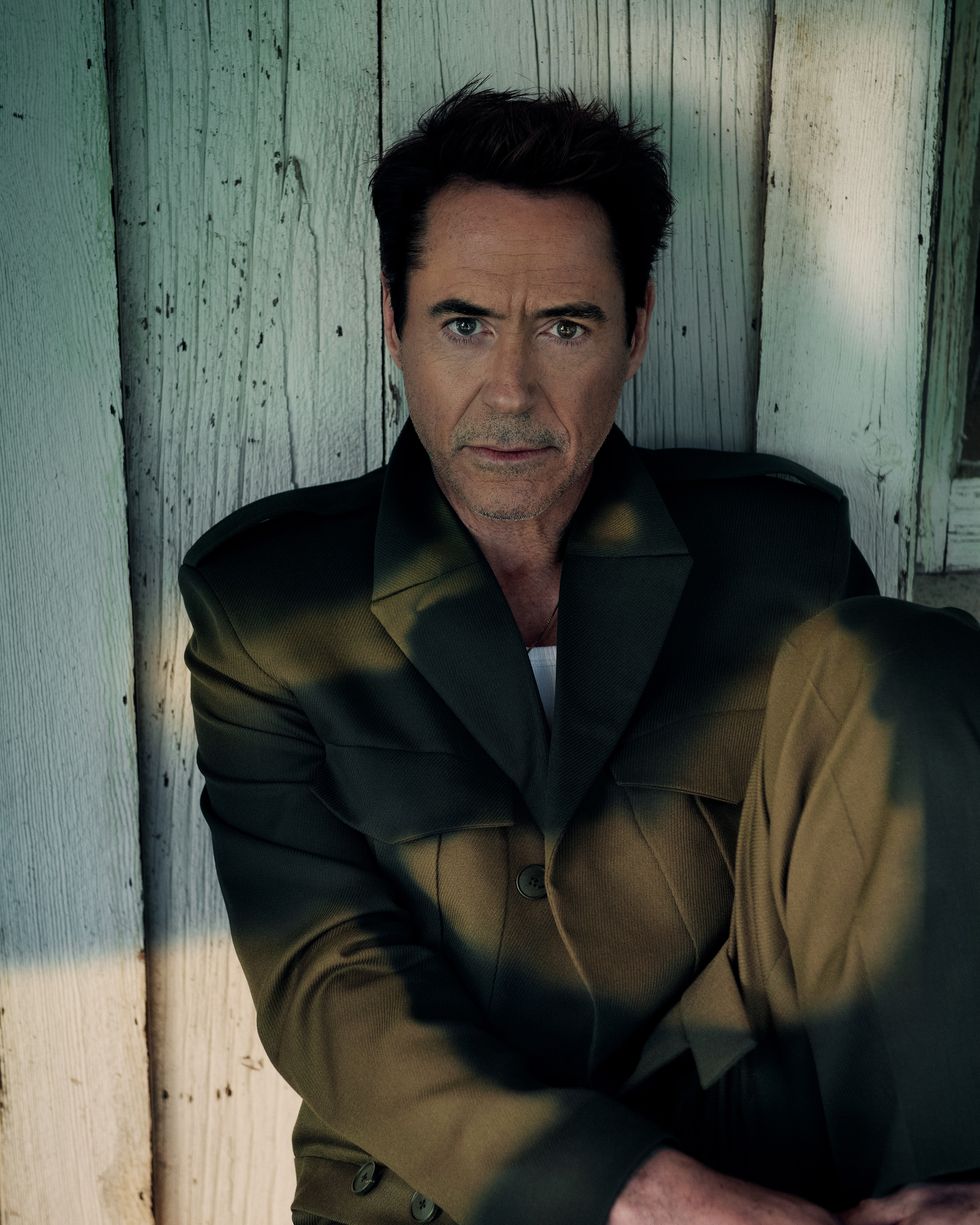
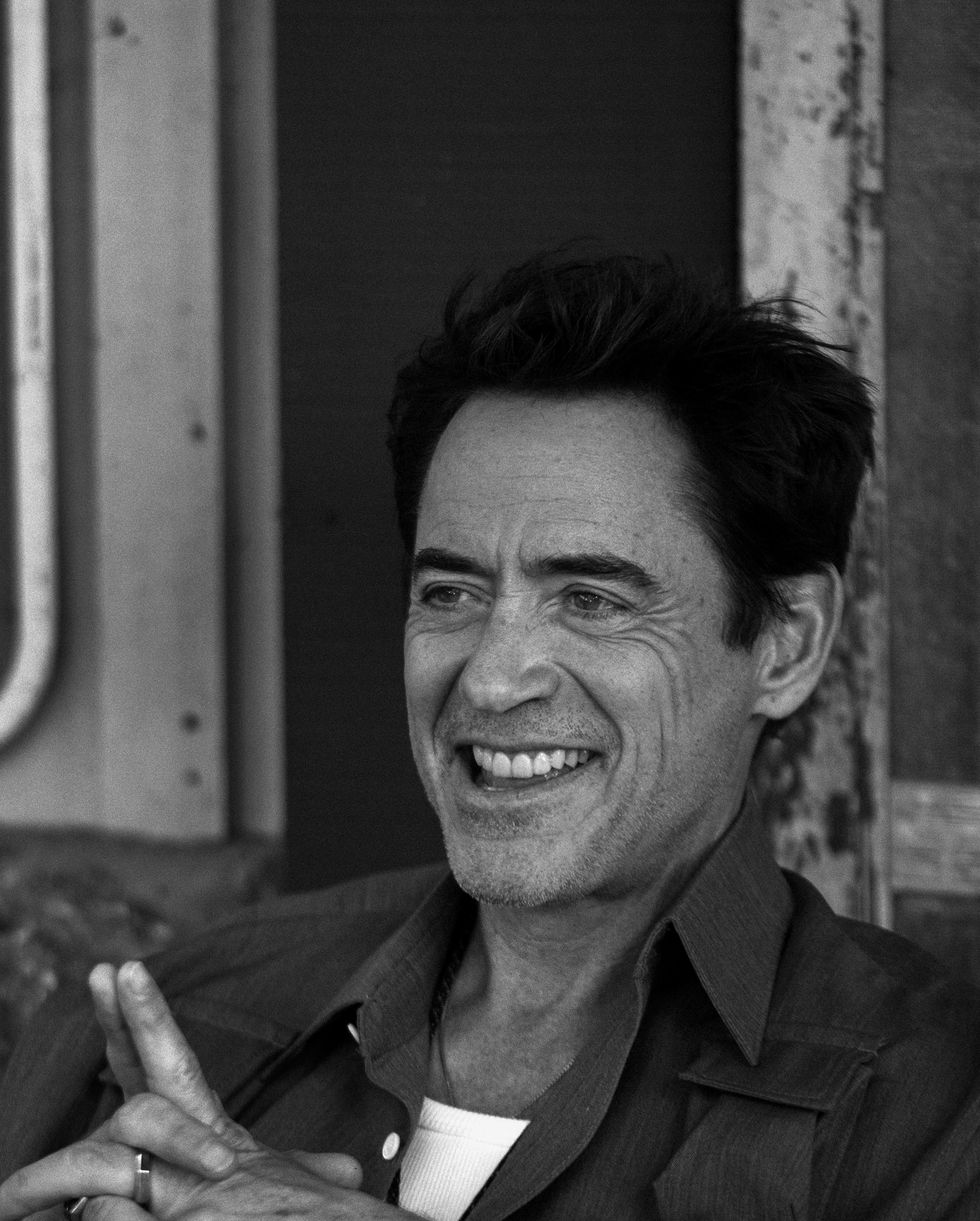
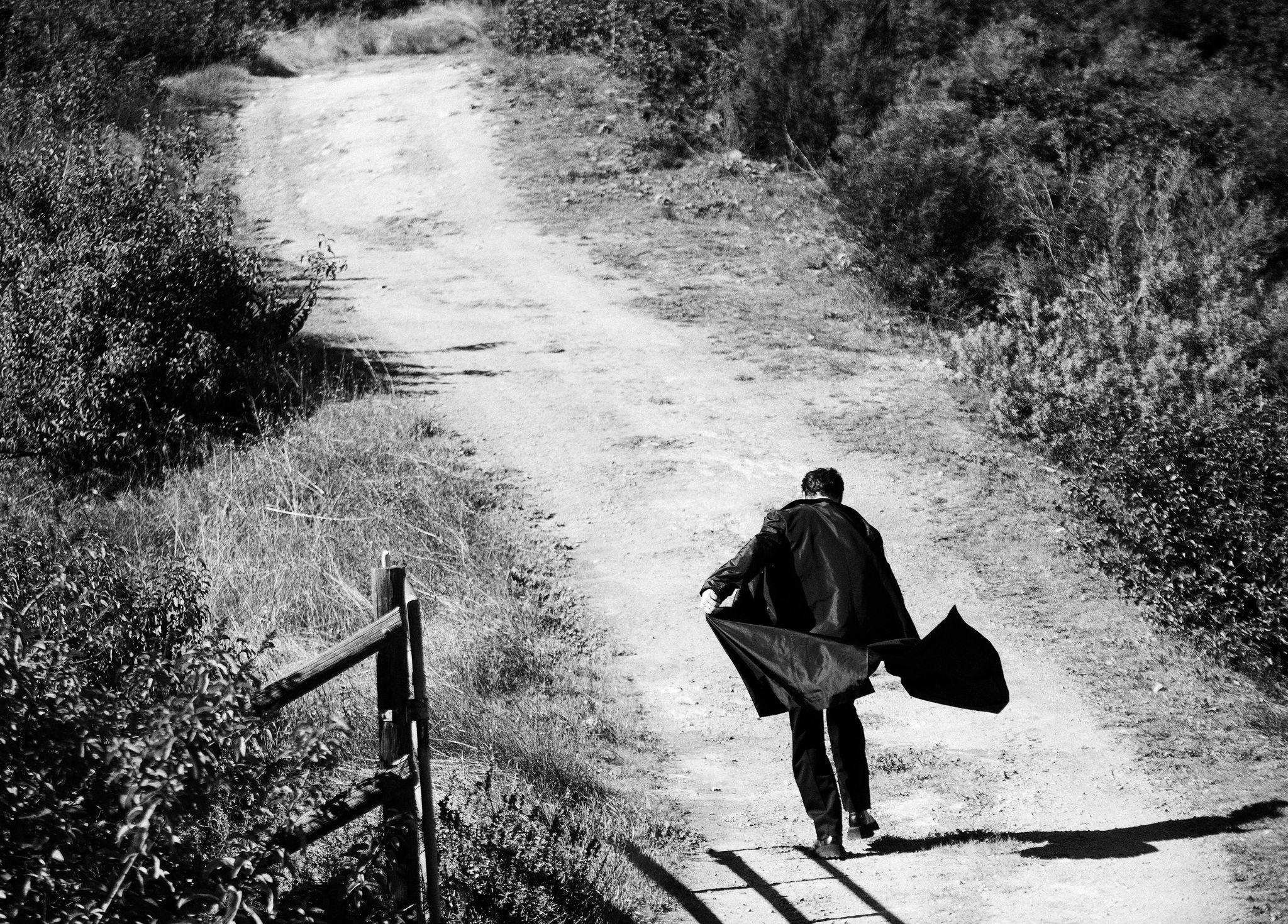














0 Response to "Robert Downey Jr. on 'Oppenheimer,' 'Iron Man' and the Marvel Universe, 'The Sympathizer,' and His Hollywood Comeback - Esquire"
Post a Comment